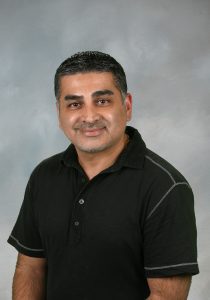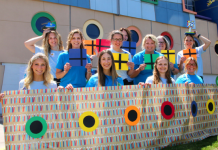 Learning your child is diagnosed with autism spectrum disorder (ASD) can be an overwhelming time for families. When you are looking after a child with autism, there’s some important information to help your family thrive.
Learning your child is diagnosed with autism spectrum disorder (ASD) can be an overwhelming time for families. When you are looking after a child with autism, there’s some important information to help your family thrive.
What is Autism Spectrum Disorder?
Autism spectrum disorder (ASD) is a neurodevelopmental disorder that can cause deficits in three main areas: language communication skills, social interactions and restricted-repetitive behaviors.
Differences between boys and girls
There is a lot still unknown about ASD and psychiatry, and there isn’t a clear-cut answer to why boys and girls show signs of ASD differently.
Boys with ASD tend to be more hyperactive and outward than girls. Restricted patterns of interest are more pronounced in boys. So, if a toddler is displaying intense aggression or hyperactivity, you’ll probably be more likely to bring it up to your child’s pediatrician. Since boys show more outward behaviors, boys are diagnosed at a higher rate than girls.
Girls display more internalizing behavior like depression and anxiety. They have more of an internal process with autism than an external pattern. Because girls present more internally, they are more likely to get diagnosed as they get older—around late elementary school or middle school. Girls usually do have some of the core deficits as well, but because they don’t present as aggressively, they can be overlooked.
Autism Treatments and Therapies
Autism is a lifelong disorder, but it does not take away from the value of life your child will have. With different kinds of therapy and interventions, and with early prognosis, kids can learn and develop the skills they need. The earlier autism is diagnosed, the better the course of treatment. Some therapies you’ll begin with are:
- Speech therapy for language development
- Occupational therapy or sensory integration for sensory and stimulus management
- Physical therapy for fine motor skills deficit
Applied behavioral analysis
Applied behavioral analysis (ABA) is usually the treatment of choice for kids with autism spectrum disorder. During ABA, life lessons and things that seem basic are broken down into their simplest parts and the desired answers or behaviors are rewards, and the undesired responses are completely ignored.
Pivotal response training
Pivotal response training takes place outside of clinical setting, in the real world. This is essentially teaching initiating communication with others and training those social and communication skills.
As kids get older, there’s a possibility for medication interventions to help treat behaviors of autism that are not necessarily the core of autism. This includes helping treat depression, anxiety, aggression etc. People with ASD can have a rigid thought process creating difficulty with transitions and changes, and they may fixate or obsess over this change.
People with ASD are perceptive in their own thought process. Medication can help loosen that rigid thinking and help if there is any extreme aggressive behavior.
Misconceptions about ASD
While 1 in 44 kids is diagnosed with autism, there remains a wide misunderstanding and stereotyping around people with ASD.
One thing often heard is that people with ASD cannot be successful. While there is a range of challenges people with ASD face, there’s also a lot of unique characteristics and strengths they possess. Kids and adults with ASD can be successful, especially with the right support system, early diagnosis and treatment.
Another common misconception is people with ASD cannot develop relationships. Relationships look different for everyone, whether someone has ASD or not. Kids can develop friendships and other relationships, enjoy being around other kids and enjoy play. Another misconception is that kids with ASD don’t have emotions. They may have trouble expressing emotions, but they still have feelings.
 Advice for parents and family members
Advice for parents and family members
Initially, it can be very difficult to hear your child was diagnosed with ASD. One of the biggest challenges for parents and family members is the sharing of emotions. For example, your child may be incredibly talented at art, and maybe they even get noticed and praised at school. Your child may not share this with you. As a parent, you want to celebrate and praise them and share that joy together.
Another difficulty is that sometimes kids on the spectrum struggle with seeing and reading emotional cues. If you’re having a bad day or a good day, they might not be able to pick up on that change in energy and will treat you the same regardless. Interactions like this can be very challenging, and it’s important you don’t take this personally.
Have hope
A key word to carry with you is hope.
- With time your child will develop social skills.
- There is an immense amount of research constantly happening around autism. We continue to learn more about the genetics involved in ASD and how to improve treatment. And the more we learn, the more this research can help your child over time.
- Remember, your child is still a unique individual.
- Focus on their strengths, what they’re doing well and helping with their treatments.
After your child is diagnosed with autism, your world may start to feel like it revolves around autism. Don’t forget about yourself, your partner and other family members. It’s okay to take a step back. If you have other children, it’s important to still praise them and give them attention. Make sure to take time with your significant other. You are also still human, and you need to give yourself attention too.
Autism is a unique and individual disorder, and while it presents its own challenges, through education, early treatment and support, children with ASD can be successful individuals. At MercyOne, they do everything they can to help your child function in their everyday lives while still getting to be like any other kid.
 About the author: Sasha Khosravi, DO, is the Chief Medical Officer at Clive Behavioral Health and Program Director at MercyOne Psychiatry Residency program. Dr. Khosravi attended Des Moines University and completed a psychiatry residency and fellowship training at Washington University in St. Louis. Dr. Khosravi specializes in psychiatry at MercyOne Des Moines Pediatrics Neurology Care in Des Moines.
About the author: Sasha Khosravi, DO, is the Chief Medical Officer at Clive Behavioral Health and Program Director at MercyOne Psychiatry Residency program. Dr. Khosravi attended Des Moines University and completed a psychiatry residency and fellowship training at Washington University in St. Louis. Dr. Khosravi specializes in psychiatry at MercyOne Des Moines Pediatrics Neurology Care in Des Moines.
Connect with MercyOne Des Moines Medical Center
 Website: MercyOne.org/desmoines
Website: MercyOne.org/desmoines
Twitter: @MercyOne_Iowa
Facebook: @mercyonedesmoines
Instagram: @mercyone_iowa
This article is part of a series of sponsored articles by MercyOne Des Moines Medical Center
When to See a Pediatric Cardiologist
















